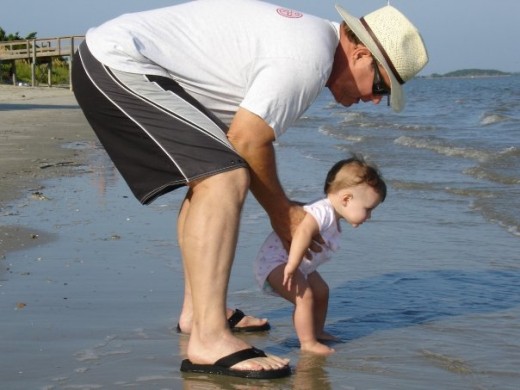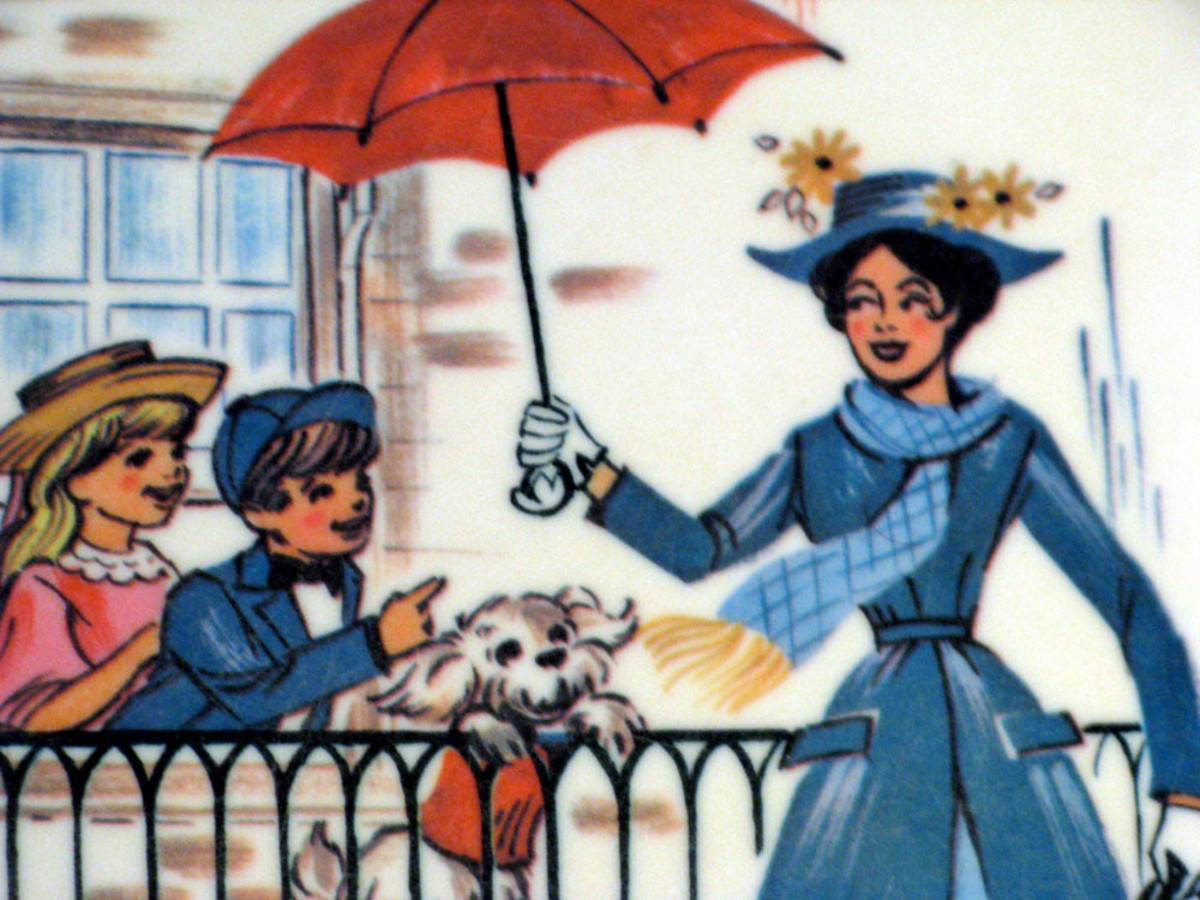How Mary Poppins Saved Mr. Banks

Can you recover from your childhood?
Someone once said (wrote an entire book about, actually) you never recover from who you were in high school.
I'd take exception to that, being an example of someone who not only survived, but thrived beyond, and probably because of, the traumas of the adolescent experience. I believe it is more perceptive to say what you never really recover from is who you were in childhood, what you experienced, and how you were treated.
Case in point: the movie, "Saving Mr. Banks."
Was there ever a more benign character than Mary Poppins? Who would have dreamed, in their wildest imaginings, that behind this nurturing mother-figure the author created, would lurk a dark history?
Well, when you stop and think about it - we all should. If anyone would understand what motivates someone to write, especially something that so profoundly resonates with so many individuals, we hubbers should. The essence of writing is this truism: happy people don't write. They are usually too busy being contented. The one who takes up the pen is more often than not motivated by some hurt we want to heal, some injustice we want to make right, some falsehood we want to go on the record with the truth to correct.
The truth for P.L. Travers, the author of the Mary Poppins books, was that her father was remembered badly, and she loved him dearly. He had been a wonderful parent to her for all his other failings. She wanted to set the record straight even though he was guilty of a parent's greatest sin.
Deleted from "Saving Mr. Banks"
Three Fathers - Three Promises
I was taken off guard by how profoundly this movie struck me. At its conclusion, I was angry. And I didn't know why.
I've had three fathers in my life: a biological one, an legally adopted one, and an in-law by marriage. I hadn't thought of them as promise-breakers, but that is exactly what happened with each one, and it is why this movie left me angry. My father-in-law was a wonderful man who loved all his children (in-laws included) down to the ground, with no exceptions, no qualifiers, no conditions. If you were one of his, you were his. He'd call any one of us "my heart." And we were.
He broke his promise by being dead when he hit the floor of a heart attack when he was only 65. I remember my first thought when I heard the news was, "God, why did you take the good one?" It's been 22 years and I still miss him every day.
The other two couldn't hold a candle to him. My natural father was simply not able. A manic-depressive alcoholic - talk about someone who never recovered from his own childhood. The medical community and lay-people of the 1920s through 1970s had no idea what mental illness was or how to treat it. People like my father were blamed for not "pulling themselves up by their bootstraps" and overcoming their illness that wasn't seen as an illness at all. It's a wonder more of them didn't become serial killers. My father just became the definition of a dead-beat dad - promise breaker. It took me years, most of my life actually, to understand that he couldn't help it.
My step-father/legal father insisted we three children (pre-teens and teenagers) give up the name we were born with and take his because we were going to be a "real family." Then he kept our mother from coming to see us play baseball, or cheer at football games, or visit us when we went away to college, or come to our children's graduations, showers, or weddings.. He spent his more than sufficient income on the things that mattered to him, while we were always limited, not by how much money was available, but by whatever else was a priority for the only bread-winner in the house. And because the three of us weren't really his flesh and blood, those priorities usually didn't have anything to do with us. We were going to be a real family? Hardly.
Yes, it's good for young people to learn the value of a dollar. But it's not good for children to feel neglected or not valued. We had to pay our own way through college, even though when we applied for loans, we'd get turned down because our "father" could afford to send six children to college. Yes, but he wouldn't, even though he'd cut us off from the education assistance available to us through our biological father's disability benefits. Nothing wrong with a student helping to pay some of the cost of his education. But should a parent guarantee the process is just as difficult as it can possibly be for that child? Do I sound resentful? Forty years later, I guess I still am. It wasn't the money. It was the unconcern - the broken promise. At my graduation, he smiled at me and asked, "Was it really that hard?" (Little doses of poison . . . )
It wasn't until I had children of my own that I realized parents didn't treat their children this way. A parent would give their child the shirt off their own back, not wait to see just how much cold their child could tolerate before another shirt was really necessary. Limits. There were always limits for everything: money, holidays, interest, concern. That's not keeping the promises that come with being a father to children.
The author of "Mary Poppins" was driven to save the memory of her father. Some of us are just as driven to forget the memories that haunt us. A dear sister-in-law gave me a wonderful book several years ago called "The Gift of the Blessing" by Gary Smalley and John Trent. It helps a person deal with the disappointment you suffer when you don't receive the blessings from your parents that God intended each child to receive.
"We all need the knowledge that someone in this world loves and accepts us unconditionally, most importantly, our parents. When you don't receive this blessing, you often spend your life seeking it elsewhere." -Smalley and Trent
You may never recover from how you were treated in childhood, the promises that were broken, but you can learn to overcome it and ensure your own children do receive "the blessing" they need and deserve. Then you can watch a movie like "Saving Mr. Banks" without saying to yourself, "at least he loved you."








